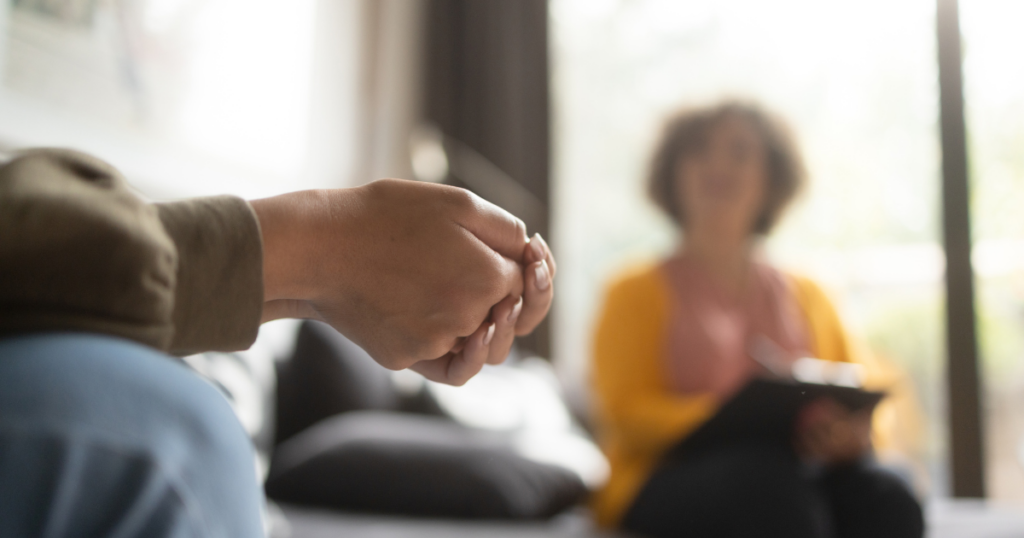Follow
Wellness & Co.
Hi, I'm Dr. K, Wellness & Co. is a growing therapy/coaching practice and educational hub for prospective clients based in Maryland and virtual clients all over the world!
Hi, I'm Dr. K
free guide
e -books
e -course
Part 1 Why Sleep Matters: How Rest Shapes Your Mental, Emotional, and Physical Well-Being
March 18, 2025
By Rebecca Horch, BACYC, CPC
Reading Time: 3 minutes
I’ve always had a complicated relationship with sleep, but when my twins were born, it went from trouble sleeping to chronic insomnia. I had never experienced anything like it before, and it was brutal. I hallucinated. I sleepwalked. I thrashed around in a half-wake, half-sleep state. I woke up in a panic, convinced I had rolled onto my babies – only to find them sleeping soundly in their crib. The exhaustion blurred the lines between reality and dream, leading to some of the most terrifying and disorienting moments of my life.

One night, while talking to my husband, I slipped into a dream-like hallucination. I thought he was my dad and kept asking where Jared (my husband) had gone and where my mom was. He was confused and scared, thinking I was having some kind of breakdown. Honestly, I kind of was – but not because of depression or trauma. It was sheer, unrelenting exhaustion. No amount of sleep could “catch me up”, and the sleep deprivation created an endless, ugly cycle.
I lost weight rapidly, making breastfeeding difficult. Postpartum anxiety hit me hard. My moods swung unpredictably between rage and mania. My body was wrecked – aching from months of carrying twins, giving birth, and then being in a state of constant hypervigilance. I felt intoxicated all the time – disconnected, like I wasn’t fully inside my own body. And in a way, I was intoxicated. Sleep deprivation affects your brain in a way that mirrors alcohol consumption. It alters you. After that experience, I fully understood why sleep deprivation is used as a form of torture.
As a therapist, sleep is one of the first things I ask about with new clients. If someone isn’t getting adequate sleep – whether due to insomnia, a medical issue, or chronic stress – it’s always on my radar. Because here’s the truth: if your sleep is suffering, everything else suffers too. Even the best therapy in the world won’t get far if the foundation of rest isn’t there. Sleep is the bedrock of emotional regulation, cognitive function, physical health, and our ability to show up in relationships. According to the National Institutes of Health (NIH), “Getting enough quality sleep at the right times can help protect your mental health, physical health, quality of life, and safety.” And yet, for so many people, restful sleep feels just out of reach – easily disrupted by stress, trauma, and the demands of daily life.

In this series, I’ll explore the factors that may be impacting your sleep and share practical, research-backed strategies to help you reclaim it. Whether you struggle with falling asleep, staying asleep, or feeling rested when you wake up, this series is for you. Sleep isn’t a luxury – it’s essential. Let’s figure out how to restore it.
Tune in next time to explore how your emotional relationship with rest shapes your sleep – and how healing it can lead to deeper, more restorative nights.
Until next time,
Rebecca
Rebecca strives to support others in building resilience, self-compassion, connected relationships and self-awareness. She loves to work with people who are ready for the hard work of inner growth and is passionate about helping others tap into their intuitive gifts and use them in this world.
Leave a Reply Cancel reply
CONTACT
Start Here
BLOG
OUR TEAM
SHOP
ABOUT
©2025 Wellness & Co. | All Rights Reserved | Design by EverMint Design Studio
BACK TO TOP
connect with us on instagram
